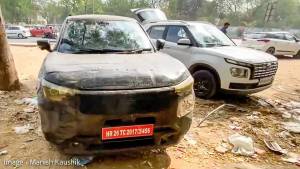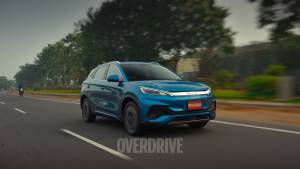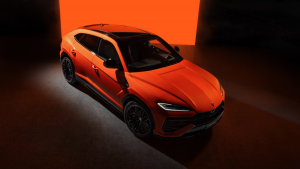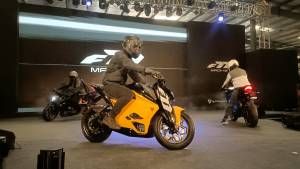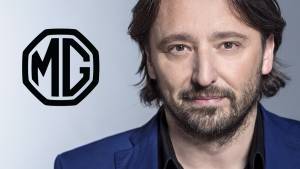Tesla open-sources its patents to push electric car development
'All our patent are belong to you' read the headline of a blog post on Tesla's website on June 12, 2014. The headline, grammatically incorrect, referenced a famous meme that started after a game called Zero Wing showed up bearing a wealth of grammatical error, the operative line being "All your base are belong to us." In the blog post, Tesla CEO and well-known tech visionary Elon Musk outlined the bold plan and his motive behind the plan.
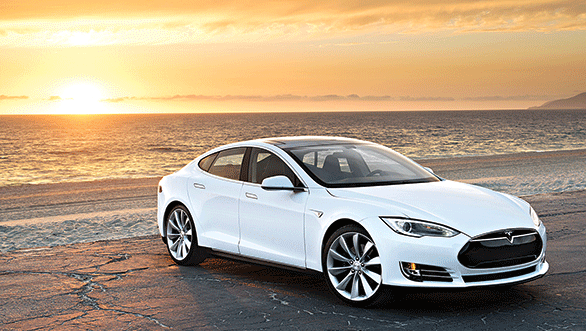
He says that Tesla stands for sustainable transport but says that innovative electric vehicles protected by "intellectual property landmines" are contrary to their goal. He points out that the Earth is at 2 billion cars right now and adds 100 million more a year and not more than 1 per cent are electric cars. The potential for electric cars is huge but the momentum of the internal combustion engine has proved unshakeable so far.
The idea is that Tesla will allow other manufacturers to use their patents to innovate and produce saleable cars and not sue them as long as the use of the patent is in good faith. On a phone call with journalists, Musk explained that "in good faith" means some sort of an arrangement between Tesla and the patent user involving goodwill, compensation or an exchange of patent use depending on the case. The public availability of the patent information is not going to mean that some Chinese chap can waltz in and start making cheap Tesla-copies without fear. Simultaneously, Tesla will pursue patents going forward as well and make those public as well. The patents will be primarily acquired to stymie patent trolls and the like.
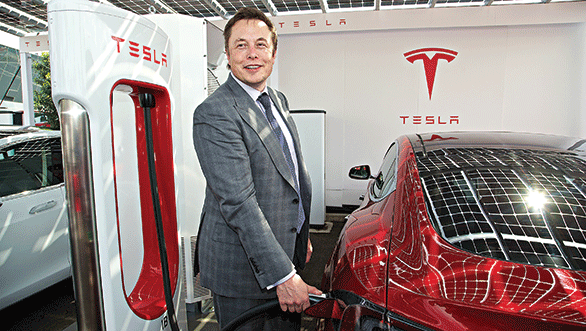 Tesla CEO Elon Musk at the opening of the company's first Supercharger fast charge station in the UK. Musk hopes the more freely available patents will speed up EV development
Tesla CEO Elon Musk at the opening of the company's first Supercharger fast charge station in the UK. Musk hopes the more freely available patents will speed up EV development
Not everyone is impressed. While Tesla's stock hit a many month high following the announcement, Tesla's financial health has been called into question. Standard & Poor rated their stock as junk in May and many believe the company will not be able to pay back its $2.2 million in debt in the next four to seven years. Tesla has attracted major manufacturers incuding Daimler and Toyota. The former uses a Tesla battery for the electric Smart city car while the electric B-Class sits on a Tesla powertrain. Toyota signed a contract with Tesla for powetrains, gearboxes, batteries as well as software for the RAV4 EV, a deal that ended in May this year.
Musk, always a bravura CEO, meanwhile also announced plans earlier to set up the Gigafactory which would be a zero-emission battery manufacturing facility where tie-ups with various battery makers would allow per KWh battery costs to fall as much as 30 per cent within the first year of production.
What Musk hopes to achieve is simple. He hopes that other manufacturers, especially big names with their scale, reach and skills will take on the cause of the electric car. The expansion of the electric car space will benefit all the players in there and Tesla, as a small player overall, doesn't actually have much risk. In any case, Musk believes that in today's day and age, patents aren't meant for hiding behind and competitive people should be able to innovate faster than they can patent.
Closer to the real world, Tesla hopes that this bold move which is contrary to every single bit of conventional patent wisdom, will spur cooperation. On day four after the blog post appeared, news reports suggested that Nissan and BMW had approached Tesla for initial talks that could lead to cooperation on the development of charging equipment standards as well as infrastructure - one of the biggest stumbling blocks in the electric car game. Tesla has patents on its supercharger technology that it has deployed today at 97 stations spanning the US. Tesla says its superchargers are placed strategically across the US to offer a 50 per cent charge in 20 minutes so that drivers can drive coast to coast with minimum stops. Tesla offers this service for free (including electricity) to its customers. Tesla also has 22 stations in Europe and three more in Asia.
The issue really is that while many are working on electric vehicle development, it's become compartmented so that people aren't cooperating to speed up development. The competition between these teams is allowing the fossil fuel powered cars to win. By allowing people to use its patents, Tesla hopes that electric vehicle developers will be more willing to work together. Cooperation makes many things easier. For example, creating the charging network is an overwhelming task for a single organisation to take on. But adding one partner halves the size of the problem. Adding ten, means only ten per cent of the problem needs to be solved by the firm.
Musk-watchers say the move is unprecedented in business strategy terms but not unexpected from a man like Elon Musk. It carries a very high risk but also has the potential for an outsize reward. Tesla most certainly hopes for the latter and if it works out, this move will be remembered as the day electric car development finally lit the afterburners.
Related Stories
Top Stories
Latest Videos
Most Popular
- Budget Sportbike Showdown: Kawasaki Ninja 500 vs Aprilia RS 457 vs Yamaha YZF-R3
- 2014 Triumph Daytona 675 vs 2024 Kawasaki ZX6R - A Decade of Evolution in Supersport Motorcycles
- Mumbai-Pune Expressway speed restrictions updated
- 2024 Hyundai Creta vs Toyota Urban Cruiser Hyryder vs Skoda Kushaq comparison review - the hype is real?
- Nissan Magnite EZ-Shift review - is the AMT any good?

